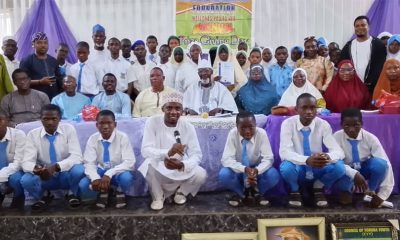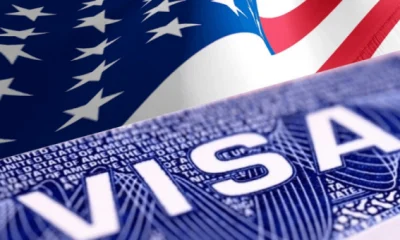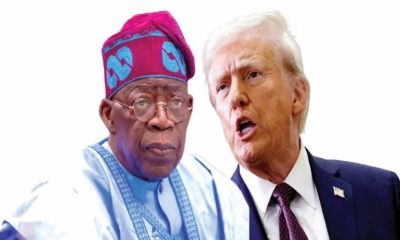Opinion
16 Days Of Activism Against Gender-Based Violence: Call For Urgent Action In Nigeria By Olabisi Atanda
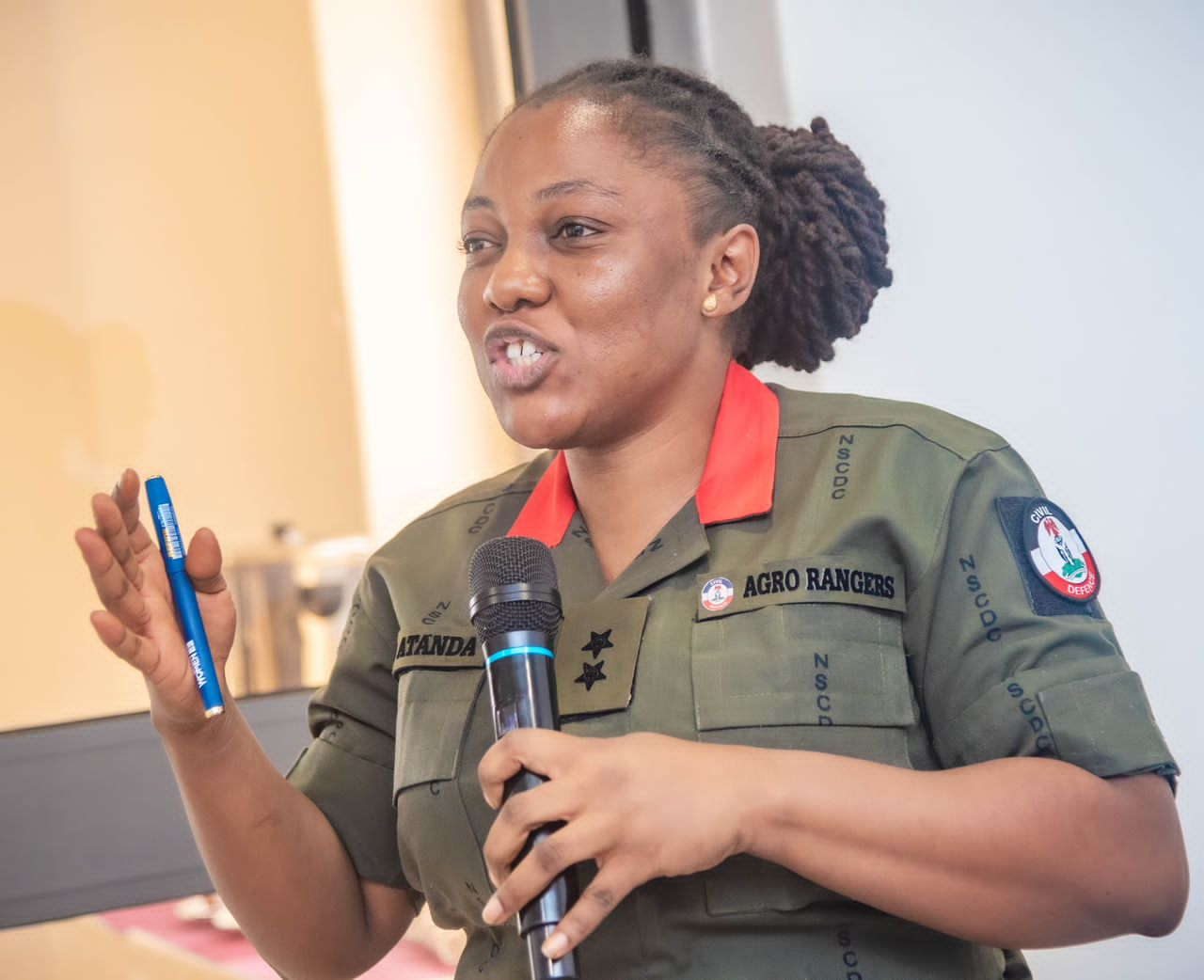
Every year, from November 25th to December 10th, the world unites for the 16 Days of Activism Against Gender-Based Violence, a campaign dedicated to raising awareness and inspiring action to eliminate violence against women and girls.
This year’s theme aligns with the Women, Peace, and Security (WPS) Agenda, emphasizing the indispensable role of women in building and sustaining peace, especially in conflict and post-conflict settings. However, in Nigeria, where gender-based violence (GBV) remains widespread, these 16 days are not just a global movement—they are a stark reminder of the country’s pressing need for change.
The WPS Agenda, adopted through the United Nations Security Council Resolution 1325 in 2000, provides a framework built on four pillars: prevention of violence and its root causes, protection of women and girls during crises, participation in peacebuilding processes, and relief and recovery through gender-sensitive rebuilding strategies. While this agenda recognizes the disproportionate impact of violence and conflict on women, it also underlines their critical roles as peacebuilders and agents of transformation.
Yet, in Nigeria, systemic issues, entrenched cultural practices, and weak institutional responses have hindered progress, leaving many women and girls trapped in cycles of violence and oppression.
A harsh reality for Nigerian women
Gender-based violence in Nigeria is a crisis that cuts across socio-economic, cultural, and geographical boundaries. Data from the National Demographic and Health Survey (2018 reveals that 30% of Nigerian women aged 15–49 have experienced physical violence, and this figure rises significantly in conflict-affected areas such as the North-East. Here, insurgency has exacerbated vulnerabilities, with women and girls often bearing the brunt of the violence.
Harmful cultural practices like child marriage, widowhood rites, and female genital mutilation (FGM perpetuate GBV, depriving women and girls of their rights and dignity. According to UNICEF, Nigeria accounts for 23 million child brides, the one of the highest number in Africa. Girls are often married off before the age of 18, exposing them to domestic violence, limited education, and health risks. FGM, practiced in several communities, continues to cause physical and psychological harm to millions of girls, despite growing awareness of its dangers. Religion is also manipulated in many cases to justify these harmful practices, further entrenching the cycle of oppression.
In conflict zones like Borno, Yobe, and Adamawa, the situation is dire. Insurgent groups such as Boko Haram have weaponized sexual violence, abducting women and girls for forced marriages and exploitation. These atrocities leave survivors with lifelong trauma, isolate them from their communities, and undermine social cohesion. Despite these challenges, survivors often find themselves without the support they need, facing stigma and ostracization instead of justice.
Policy and legal challenges
Nigeria has taken steps to address GBV through the Violence Against Persons Prohibition (VAPP) Act, which criminalizes various forms of violence, including domestic violence, rape, and harmful traditional practices. However, the implementation of the law remains weak. While all 36 states and the Federal Capital Territory have domesticated the VAPP Act, enforcement mechanisms are often lacking. Survivors frequently encounter systemic barriers, including slow legal processes, inadequate support services, and societal pressures that discourage reporting.
Some states, like Lagos, have taken commendable strides by establishing specialized GBV courts that expedite cases and provide a more survivor-centric approach to justice. The Lagos State Domestic and Sexual Violence Protection Law strengthens these mechanisms, ensuring survivors have access to protection and legal redress. Expanding such initiatives to other states could serve as a model for nationwide reform.
Role of communities and institutions
The fight against GBV requires collective action at every level of society. Community engagement is essential in challenging harmful norms and practices. Religious and traditional leaders hold significant influence in many Nigerian communities and must be actively involved in promoting gender equality and condemning GBV. Through education and dialogue, these leaders can play a pivotal role in reshaping societal attitudes and breaking the cycle of violence.
Institutions also have a critical role to play. Security agencies must be trained to handle GBV cases with professionalism and sensitivity, ensuring that survivors feel safe coming forward. Specialized training should include understanding the provisions of the VAPP Act and state-specific laws, as well as the importance of confidentiality and survivor-centered approaches.
At the grassroots level, organisations like the Mirabel Centre in Lagos are making a difference by providing medical and psychosocial support to survivors. However, the availability of such centers remains limited, and there is an urgent need to establish more across the country. These centers offer a lifeline to survivors, helping them rebuild their lives and regain their dignity.
While raising awareness is a vital part of the solution, campaigns like Orange the World, which runs alongside the 16 Days of Activism, play a crucial role in shifting societal attitudes and highlighting the importance of gender equality. Through media, community events, and advocacy, such campaigns keep the conversation alive and inspire action.
Equally important is the need to amplify women’s leadership across all sectors. Studies show that peace agreements involving women are 35% more likely to last 15 years or longer, underscoring the value of inclusive decision-making. Nigerian women must be empowered not only as survivors but also as leaders and change-makers in their communities.
The fight against GBV and the realisation of the WPS Agenda in Nigeria depend on a unified commitment to justice, equality, and peace. As we observe the 16 Days of Activism, let us reflect on the strides made while doubling efforts to address the challenges that remain.
Ending GBV in Nigeria is not just a matter of justice—it is a matter of humanity. As the world observes these 16 days, Nigeria must seize the opportunity to renew its commitment to the rights and safety of its women and girls. From strengthening legal frameworks to fostering cultural change, every effort counts in creating a future where violence is no longer a norm but a distant memory.
The time to act is now. Together, we can create a Nigeria where women and girls live free from violence and are empowered to lead the charge for peace and security.
-

 Entertainment4 days ago
Entertainment4 days agoNigerian Singer, Ifunanaya, Died After Snake Bite In Abuja
-
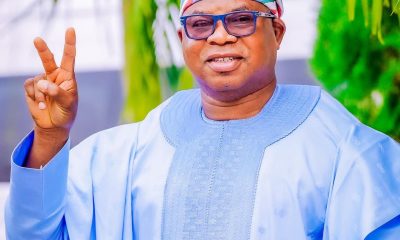
 Opinion5 days ago
Opinion5 days agoBola Oyebamiji: Beyond Skelewu Dancer: The Rising Technocrat Poised To Govern Osun State In 2026 By Wale Atoba
-

 News4 days ago
News4 days ago20-Year-Old College Student Found Dead With Body Parts Missing In Kogi
-
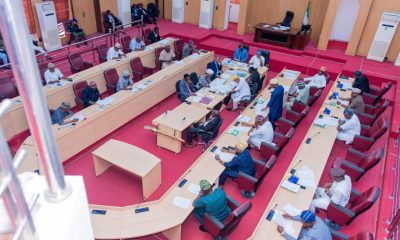
 News5 days ago
News5 days agoOsun Assembly Warns UBA, Oyetola, APC Over Alleged Diversion Of Osun LG Funds





